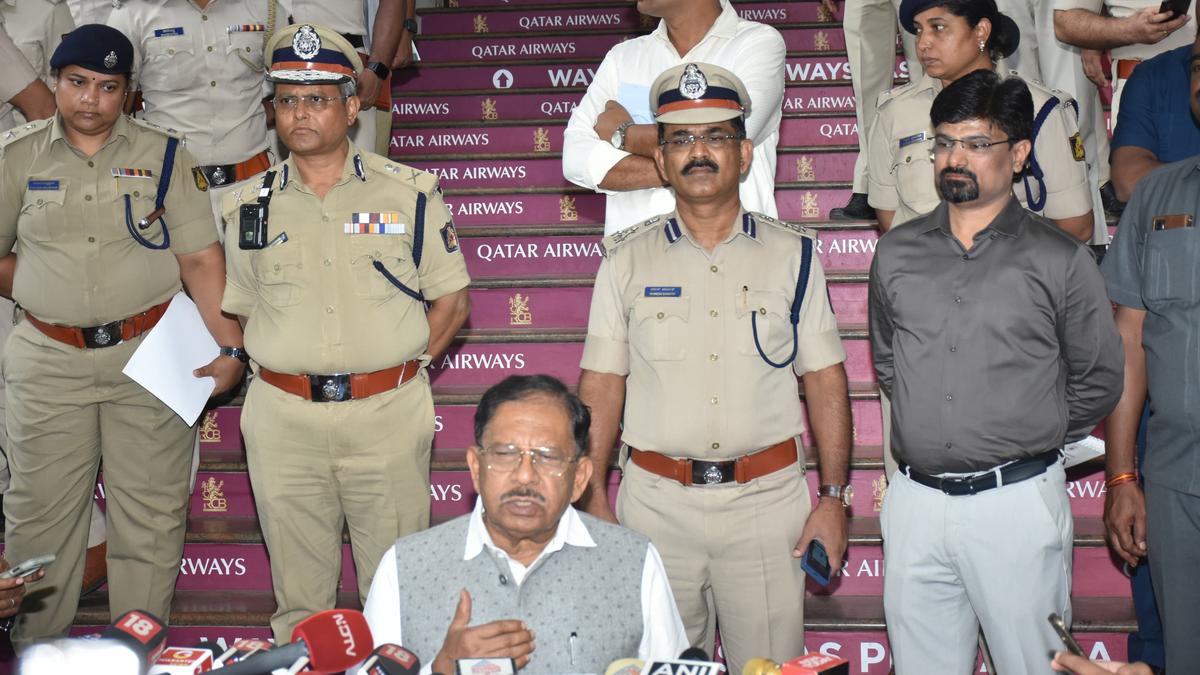
Research carried out by Global Antibiotic Research and Development Partnership, a non-profit health organisation, has revealed that a significant number of multidrug-resistant infections in low- and middle-income countries, including India, are not being treated appropriately, because of large gaps in access.
| Photo Credit: Reuters
Only 7.8% of patients with drug-resistant infections in India received an appropriate antibiotic, a study of eight nations published in The Lancet Infectious Diseases journal has revealed. Lack of access to appropriate treatment for such serious infections increases morbidity and mortality, besides driving up health care costs and prolonging hospitalisation.
Research carried out by Global Antibiotic Research and Development Partnership (GARDP), a non-profit health organisation, has revealed that a significant number of multidrug-resistant infections in low- and middle-income countries (LMICs), including India, are not being treated appropriately, because of large gaps in access.
The study looked at which antibiotics were available to treat nearly 1.5 million cases of carbapenem-resistant Gram-negative (CRGN) infections across eight geographically diverse and populous LMICs — Bangladesh, Brazil, Egypt, India, Kenya, Mexico, Pakistan and South Africa. India’s 7.8% measures are against an average of 6.9% across all eight countries.
The study was undertaken to establish the barriers along the treatment pathway from initial presentation at the health facility to laboratory diagnostic testing to antibiotic access.
Two key parameters
The researchers defined and estimated two key parameters — the need for treatment or total number of resistant bacterial infections; the number of individuals potentially initiated on appropriate treatment, specifically focusing on CRGN infections. Researchers used The Lancet’s “Global Burden of Antimicrobial Resistance” (GRAM) study and IQVIA data for 2019 to arrive at the numbers.
“We were looking at three aspects,” explains Jennifer Cohn, GARDP’s Global Access Director and senior author of the study. “These were: To evaluate the access to antibiotics gap; create better data that will be an imperative to better define the cascade of care; and look at strong programmes or innovations that enabled better antibiotics stewardship in nations.” While the study only focused on eight countries, including India, she said there was a good reason to believe that the findings from this study also apply to other LMICs.
“We all know that high-end antibiotics are extensively overused and misused in countries like India, contributing significantly to resistance against these life-saving drugs. But this paper reminds us of an equally alarming issue — lack of access to these same antibiotics,” says Abdul Ghafur, infectious diseases specialist and founder, AMR Declaration Trust.
“In 2019, India had nearly 10 lakh carbapenem-resistant gram-negative infections, yet less than 1 lakh patients received appropriate treatment. The modelling suggests that around 3.5 lakh deaths occurred due to these infections. So we are caught in a paradox — irrational overuse on one end, and insufficient access on the other,” he added.
“To address this dual crisis, we must act on both fronts: preserve existing antibiotics through responsible use and ensure access to those who genuinely need them,” Dr. Ghafur further suggested. In the paper, authored by Anant Mishra et al, the recommendations are to set in place regulatory guardrails that will not only control antibiotics use, but also make sure that the access gap is bridged by nations and institutions. They also call for more research to better understand the barriers in accessing care, diagnoses and appropriate treatment.
Published – May 01, 2025 04:47 am IST



Leave a Comment